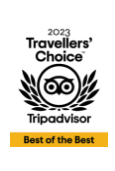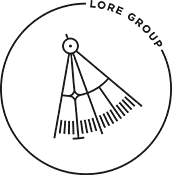Climate Action, Carbon Management
Long-term thinking, short-term measurement
How do we keep our commitments?
We work with management system FuturePlus. We seek independent guidance from dedicated specialists, such as “De Groene Grachten”.
How are we implementing a climate action strategy?
In short, through a drive towards decarbonisation thanks to the measurement of our ESG and by scientifically monitoring all of our carbon scopes, staying up to date with the latest legislation and tools. Understanding that we must independently verify and audit every link in our supply chain for scope 3 is a challenge we’re currently facing, with an aim to report accurately on that by 2026. Scrutinising how we source materials and the carbon footprint of every link in our supply chain is no mean feat — with all the greenhouse emissions outside of our control being notoriously difficult to track and cut — but we’re leaning in and learning.
Calculating our footprint
It’s vital that all greenhouse gas emissions resulting from all hotel activity are tracked – this is where we are all over our scopes 1 and 2, which are calculated and prepared internally at Lore Group with a view to have these independently verified in 2025 and starting measuring and reducing scope 3 emissions in 2026.
We avoid external third-party offset carbon credits, aiming to reduce our emissions at source by adopting renewable energy for electricity throughout the portfolio from 2025.
Climate Change Risk Assessments
Assessments are carried out to establish the potential risks and impacts that may occur to our hotel businesses directly due to climate change. By identifying risk factors, impact, mitigation, and adaptation can be implemented. Joined-up thinking includes FuturePlus supporting us in understanding all risks, and all of our owner-operated buildings were assessed at the end of 2023 for long-term investments and improvements.
Task Force on Financial-Related Financial Disclosures — over and above compliance
Lore Group properties don’t fall within this regulatory reporting, but since we are also exposed to these risk factors and due to us falling into Scope 3 of business we want to contract, we have carried out a top-line voluntary risk assessment as part of a broader climate change mitigation and adaptation plan and used the TCFD disclosure framework as best practice. We elect to go above and beyond what’s mandatory.






